Our All Honey
Sundarban Honey is famous for its unique flavor, while local fish dishes showcase the region’s biodiversity, and Cui Jahl reflects traditional cooking methods.
-
Sale!
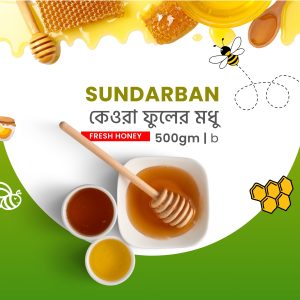
কেওড়া ফুলের মধু 0.5kg
750.00৳Original price was: 750.00৳ .600.00৳ Current price is: 600.00৳ . Add to cart Get Now! -
Sale!
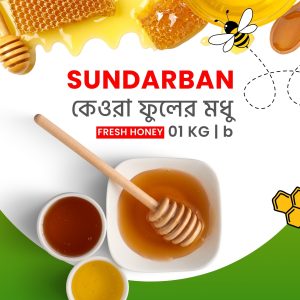
কেওড়া ফুলের মধু(1.0kg)
1,250.00৳Original price was: 1,250.00৳ .1,000.00৳ Current price is: 1,000.00৳ . Add to cart Get Now! -
Sale!

খলিশা ফুলের মধু 0.5KG
750.00৳Original price was: 750.00৳ .600.00৳ Current price is: 600.00৳ . Add to cart Get Now! -
Sale!

খলিশা ফুলের মধু(1.0kg)
1,250.00৳Original price was: 1,250.00৳ .1,000.00৳ Current price is: 1,000.00৳ . Add to cart Get Now! -
Sale!
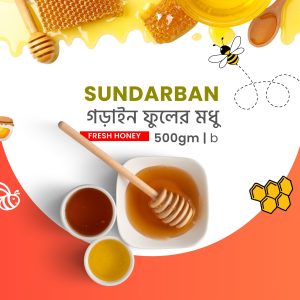
গরান ফুলের মধু(0.5kg)
750.00৳Original price was: 750.00৳ .600.00৳ Current price is: 600.00৳ . Add to cart Get Now! -
Sale!

গরান ফুলের মধু(1.0kg)
1,250.00৳Original price was: 1,250.00৳ .1,000.00৳ Current price is: 1,000.00৳ . Add to cart Get Now! -
Sale!
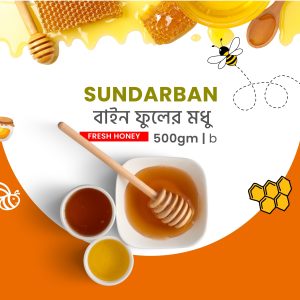
বাইন ফুলের মধু(0.5kg)
750.00৳Original price was: 750.00৳ .600.00৳ Current price is: 600.00৳ . Add to cart Get Now! -
Sale!

বাইন ফুলের মধু(1.0kg)
1,250.00৳Original price was: 1,250.00৳ .1,000.00৳ Current price is: 1,000.00৳ . Add to cart Get Now! -
Sale!
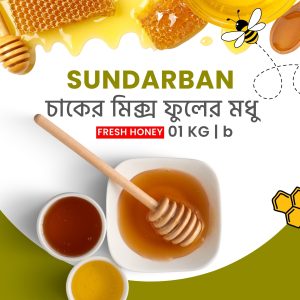
সুন্দরবনের মধু কম্বো (2.0kg)
2,500.00৳Original price was: 2,500.00৳ .2,000.00৳ Current price is: 2,000.00৳ . Add to cart Get Now!
Meet Our Traditional Food
Sundarban Honey: Renowned for its unique flavor and health benefits, Sundarban honey is produced by bees that forage on the nectar of diverse flowers in the Sundarbans mangrove forest. This honey is often raw and unfiltered, preserving its natural nutrients. It is not only used as a sweetener but also celebrated for its medicinal properties, including its role in boosting immunity and improving digestive health.
Fish: The Sundarbans are famous for their rich aquatic biodiversity. Fish, especially varieties like Hilsa, are staples in the local diet. These fish are often caught using traditional methods, reflecting the fishing practices of the region. Sundarban fish dishes are typically prepared with local spices and herbs, highlighting the flavors unique to this area.
Cui Jahl: A traditional dish from the Sundarbans, Cui Jahl is a type of curry made with small fish or shrimp, often cooked with mustard oil, green chilies, and a blend of spices. This dish is not only cherished for its taste but also represents the culinary traditions of the local communities, emphasizing the use of fresh, locally-sourced ingredients.
Together, these traditional foods showcase the unique culinary heritage of the Sundarbans, combining the flavors and practices that have been preserved through generations. They reflect the region’s identity, emphasizing sustainability and local culture.
For more detailed insights into traditional foods from the Sundarbans, consider exploring resources like Food and Agriculture Organization (FAO) or local culinary blogs that focus on Bangladeshi cuisine.


